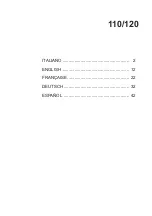
Hypertherm
1-11
SAFETY
11/08
Dry dust collection information
At some sites, dry dust can represent a potential explosion hazard.
The U.S. National Fire Protection Association’s 2007 edition of NFPA standard 68, “Explosion Protection by
Deflagration Venting,” provides requirements for the design, location, installation, maintenance, and use of devices and
systems to vent combustion gases and pressures after any deflagration event. Consult with the manufacturer or installer
of any dry dust collection system for applicable requirements before you install a new dry dust collection system or make
significant changes in the process or materials used with an existing dry dust collection system.
Consult your local “Authority Having Jurisdiction” (AHJ) to determine whether any edition of NFPA 68 has been
“adopted by reference” in your local building codes.
Refer to NFPA68 for definitions and explanations of regulatory terms such as deflagration, AHJ, adopted by reference,
the Kst value, deflagration index, and other terms.
Note 1 – Hypertherm’s interpretation of these new requirements is that unless a site-specific evaluation has been
completed to determine that all dust generated is not combustible, the 2007 edition of NFPA 68 requires the use of
explosion vents designed to the worst-case Kst value (see annex F) that could be generated from dust so that the
explosion vent size and type can be designed. NFPA 68 does not specifically identify plasma cutting or other thermal
cutting processes as requiring deflagration venting systems, but it does apply these new requirements to all dry dust
collection systems.
Note 2 – Users of Hypertherm manuals should consult and comply with all applicable federal, state, and local laws and
regulations. Hypertherm does not, by the publication of any Hypertherm manual, intend to urge action that is not in
compliance with all applicable regulations and standards, and this manual may never be construed as doing so.
















































